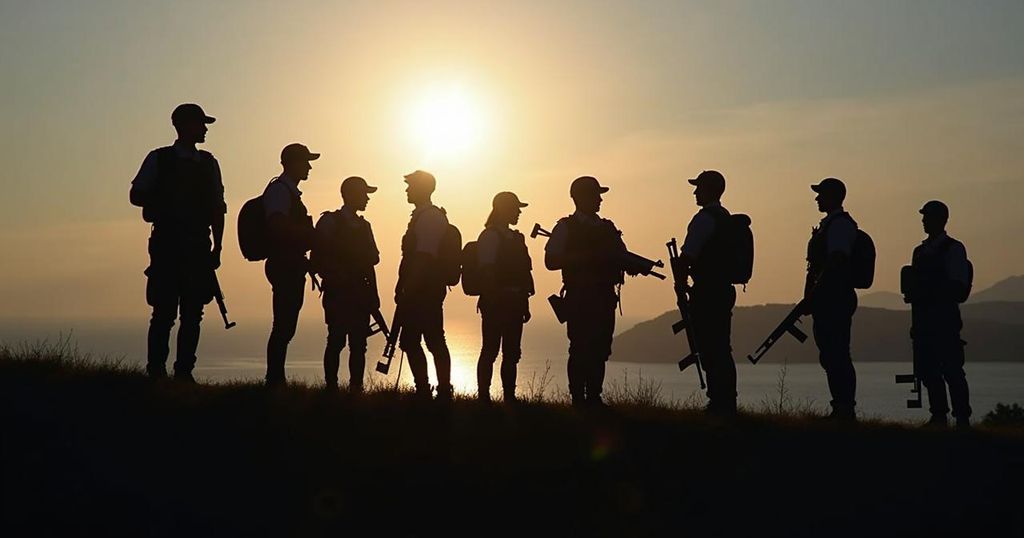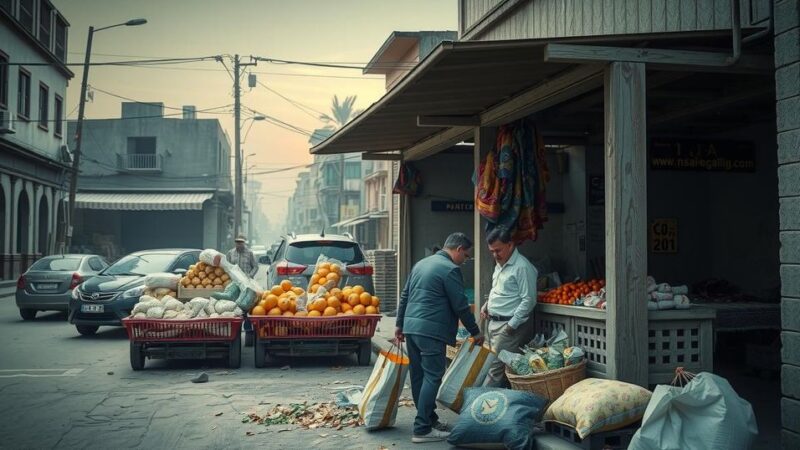The Gallup Global Safety Report 2024 highlights that Latin America and the Caribbean still experience the worst citizen perceptions of security, despite some improvements since 2017. Countries like El Salvador show notable advancements in safety perception, while Chile and Ecuador face alarming declines due to rising organized crime and violence. The report presents a detailed comparison of security perceptions in these nations, emphasizing the stark contrasts and underlying issues affecting public safety in the region.
According to the latest Gallup Global Safety Report 2024, Latin America and the Caribbean remain the region with the most unfavorable citizen perception of security, despite incremental improvements observed over the past three years. The report, which evaluates citizens’ experiences with violent crime and their trust in law enforcement, indicates that people in this region exhibit the lowest levels of security and trust in police among respondents from 140 countries surveyed. Since the initiation of these surveys in 2015, Latin America has consistently ranked poorly regarding perceptions of safety, largely attributed to challenges posed by drug trafficking, organized crime, and corruption. In the 2024 index, notable trends emerged: El Salvador, Uruguay, Guatemala, Honduras, Paraguay, and the Dominican Republic recorded enhancements in their security perceptions compared to the previous year. Conversely, Chile, Argentina, Colombia, Peru, and Ecuador experienced declines in their ratings, while Venezuela and Mexico maintained stagnant positions. Particularly alarming was Chile’s situation, where only 36% of citizens felt safe walking at night—this represents a significant decline from prior years. According to Gallup, Chile’s Law and Order score plummeted to 68, below the global average. The country is grappling with rising organized crime influences, a stark increase in homicide rates, and escalating kidnappings driven by transnational gangs such as Tren de Aragua. In Ecuador, the security situation is described as deteriorating. The 2024 index indicates that merely 27% of Ecuadorians feel secure walking at night, marking the lowest figure in Latin America. The Law and Order index score for Ecuador stands at a mere 55. The escalation of violence linked to drug trafficking, particularly in high-crime areas such as Guayas province, underscores the profound security crisis facing the nation. Contrastingly, El Salvador showcases a remarkable transformation in citizens’ perception of safety, with 88% reporting feeling secure walking alone at night. This figure signifies a historic high for the country, bolstered by President Nayib Bukele’s stringent policies and an ongoing state of emergency. Despite achieving a Law and Order score of 89—higher than many developed nations—these aggressive strategies have raised concerns regarding potential human rights violations. An analysis of the 2024 Gallup report indicates that regional perceptions of security vary significantly, emphasizing the multifaceted nature of crime and safety in Latin America, which is heavily influenced by organized crime and government responses.
The Gallup Global Safety Report is an annual survey that evaluates the perceptions of safety and trust in law enforcement among citizens across various countries. Latin America and the Caribbean have consistently ranked poorly in these assessments due to persistent issues like organized crime, drug trafficking, and corruption. Over the past few years, some nations in the region have implemented substantial security measures in response to public concern about crime, leading to varying results in citizen perceptions of safety. The report highlights the stark contrasts in security experiences, especially among countries such as El Salvador, Chile, and Ecuador, thereby illustrating the complex dynamics of crime and public safety in the region.
The findings from the 2024 Gallup Global Safety Report reveal significant disparities in security perceptions across Latin America and the Caribbean. While El Salvador has notably improved its citizen perception of safety, reflected in a high Law and Order score, Chile and Ecuador continue to grapple with increasing insecurity and declining citizen trust in law enforcement. These contrasting scenarios underscore the urgent need for tailored approaches to address the unique security challenges faced by individual countries in the region, balancing effective crime prevention with the safeguarding of human rights.
Original Source: insightcrime.org






